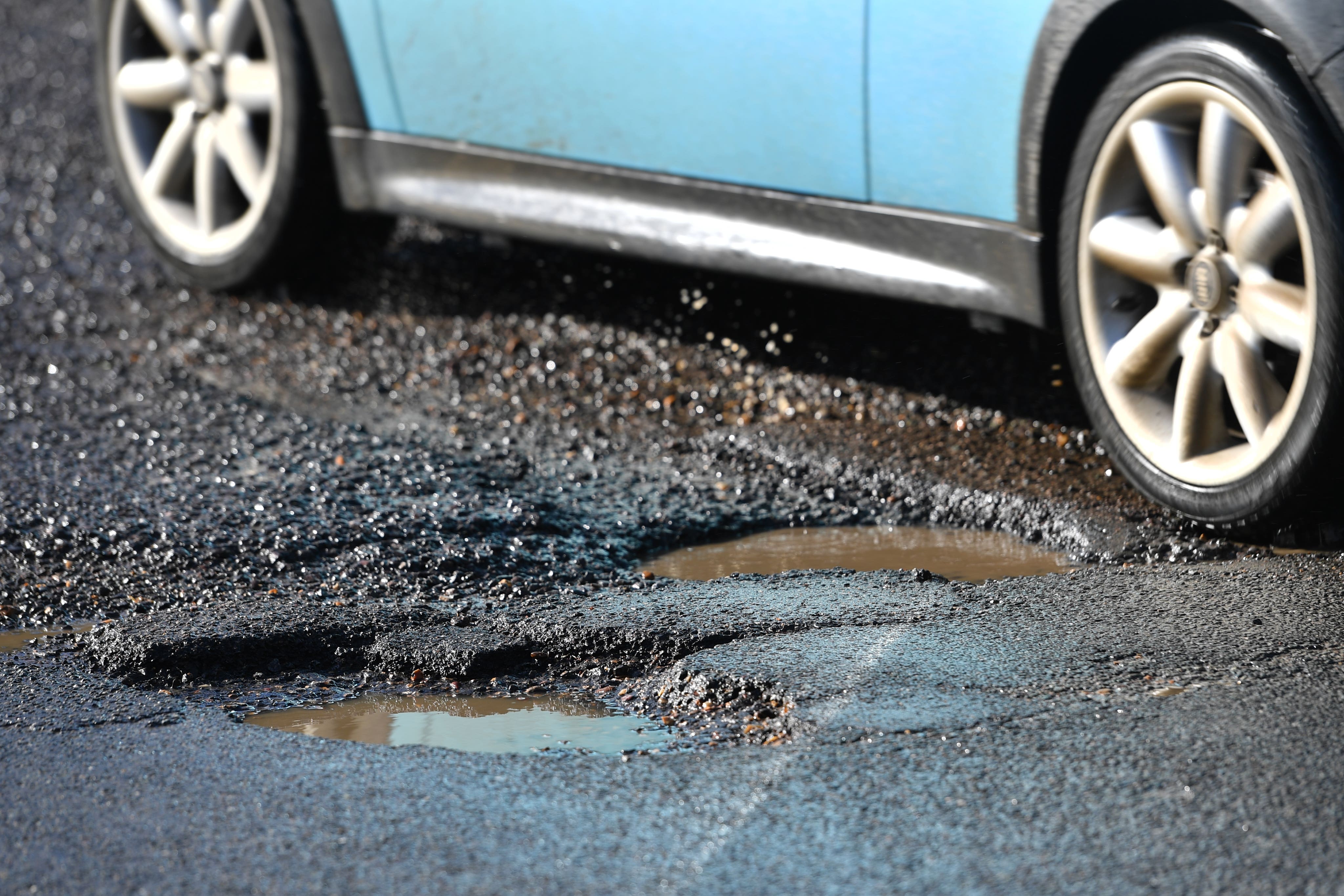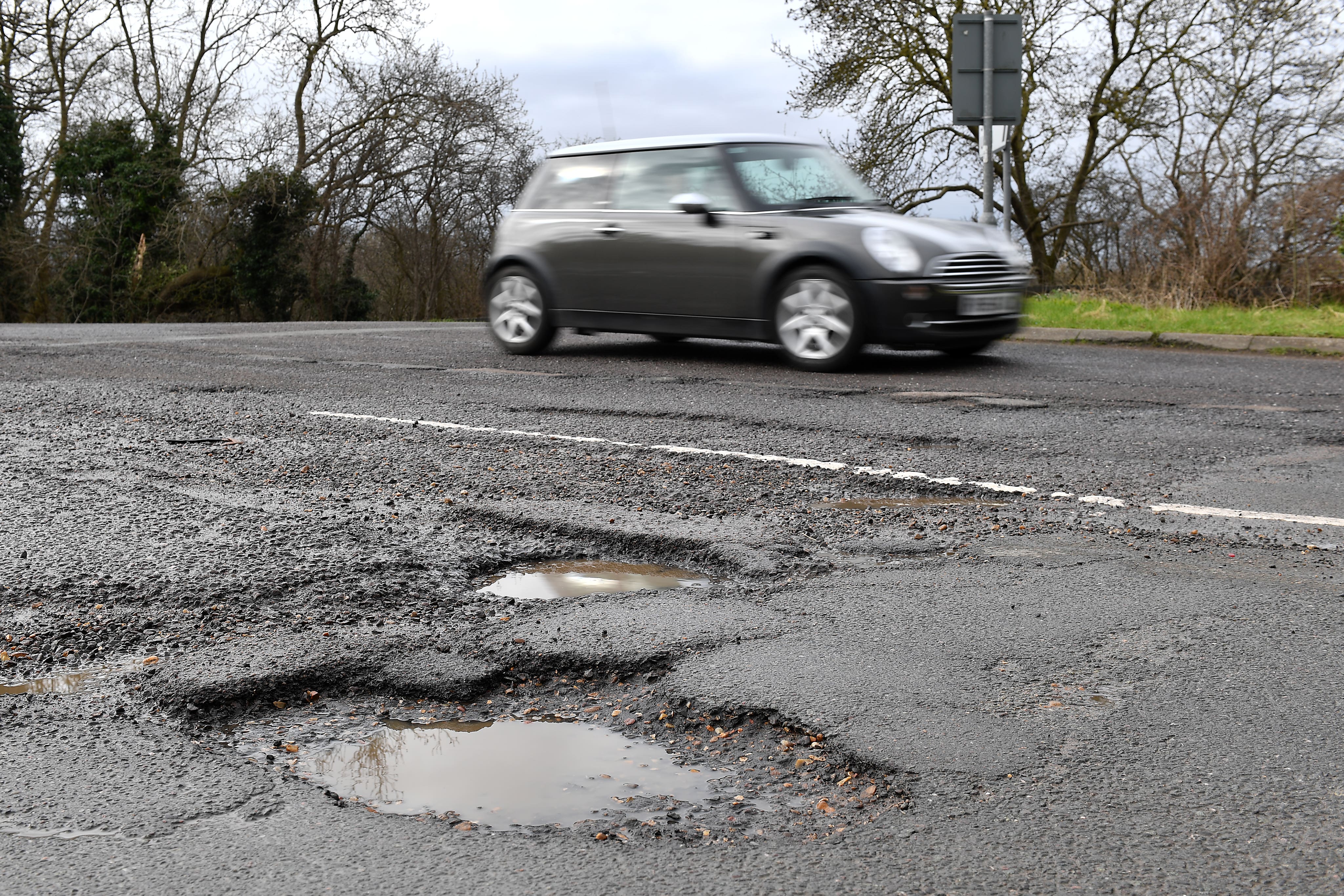Councils refuse to fix potholes that are ‘too small’ – how big do they have to be?
Thirteen local authorities state only potholes at least 30cm wide and 4cm deep will get fixed
Your support helps us to tell the story
From reproductive rights to climate change to Big Tech, The Independent is on the ground when the story is developing. Whether it's investigating the financials of Elon Musk's pro-Trump PAC or producing our latest documentary, 'The A Word', which shines a light on the American women fighting for reproductive rights, we know how important it is to parse out the facts from the messaging.
At such a critical moment in US history, we need reporters on the ground. Your donation allows us to keep sending journalists to speak to both sides of the story.
The Independent is trusted by Americans across the entire political spectrum. And unlike many other quality news outlets, we choose not to lock Americans out of our reporting and analysis with paywalls. We believe quality journalism should be available to everyone, paid for by those who can afford it.
Your support makes all the difference.Potholes are going unfilled because councils think they are too small, analysis shows.
A total of 35 per cent of local authorities say the size potholes must be before they will act.
The most common depth stated is 4cm (54 councils), but in the case of six councils – Warwickshire, Torbay, Thurrock, Nottingham, Torfaen and South Lanarkshire – potholes need to be at least 5cm (2in) deep to be considered for repair.
Thirteen local authorities, including Buckinghamshire, Stockport and Devon, state only those at least 30cm wide and 4cm deep will get fixed.
Some 37 per cent of councils say they take a “risk-based approach” in deciding which potholes to fix and how quickly to do so, while 29 per cent do not state any criteria online.
RAC spokesman Rod Dennis said: “For a long time, we’ve advised the public to report each and every pothole they come across to their local authority, not least as a council can refuse to compensate for damage caused from hitting one if they can prove they didn’t know it existed.
“But unfortunately, as this analysis shows, just reporting a road defect doesn’t guarantee it will get fixed.
“In some cases, councils state a pothole needs to be sufficiently deep or wide to be considered for repair.
“This can be enormously frustrating for anyone who comes across one, reports it but then witnesses it get even bigger and more dangerous as it didn’t quite reach a council’s threshold for repair.”

Common vehicle problems caused by potholes include damaged shock absorbers, broken suspension springs and distorted wheels.
In October 2023, the Government announced it would provide £8.3 billion of extra funding over 11 years to fix potholes in England.
This was part of the Network North strategy to use money saved by scrapping the planned extension of HS2 north of Birmingham.
The cost of bringing pothole-plagued local roads in England and Wales up to scratch has been estimated at £16.3 billion.

Darren Rodwell, transport spokesman for the Local Government Association, said: “Councils are on the side of all road users and want to focus on properly resurfacing our roads, including tackling the £16.3 billion backlog of road repairs.
“Many factors affect repair rates, such as the road profile, traffic levels and available budgets.
“Councils would much prefer to focus on preventative repairs but only greater, year-on-year long-term funding certainty for maintaining all parts of our highways will help them achieve this.
“The Government should award council highways departments five-yearly funding allocations, on a par with National Highways, to give them more certainty to develop resurfacing programmes and other improvements to help prevent potholes in the first place.”
A Department for Transport spokesperson said: “Local authorities are responsible for maintaining their local roads, including setting criteria for repairs, but we’re supporting them with an additional £8.3 billion of reallocated HS2 funding – the biggest ever funding increase for local road improvements.
“We have also introduced new reporting requirements which mean local authorities will need to report on their road maintenance progress on a quarterly basis, ensuring taxpayers can hold them to account for how they spend the record funding increase.”

Join our commenting forum
Join thought-provoking conversations, follow other Independent readers and see their replies
Comments